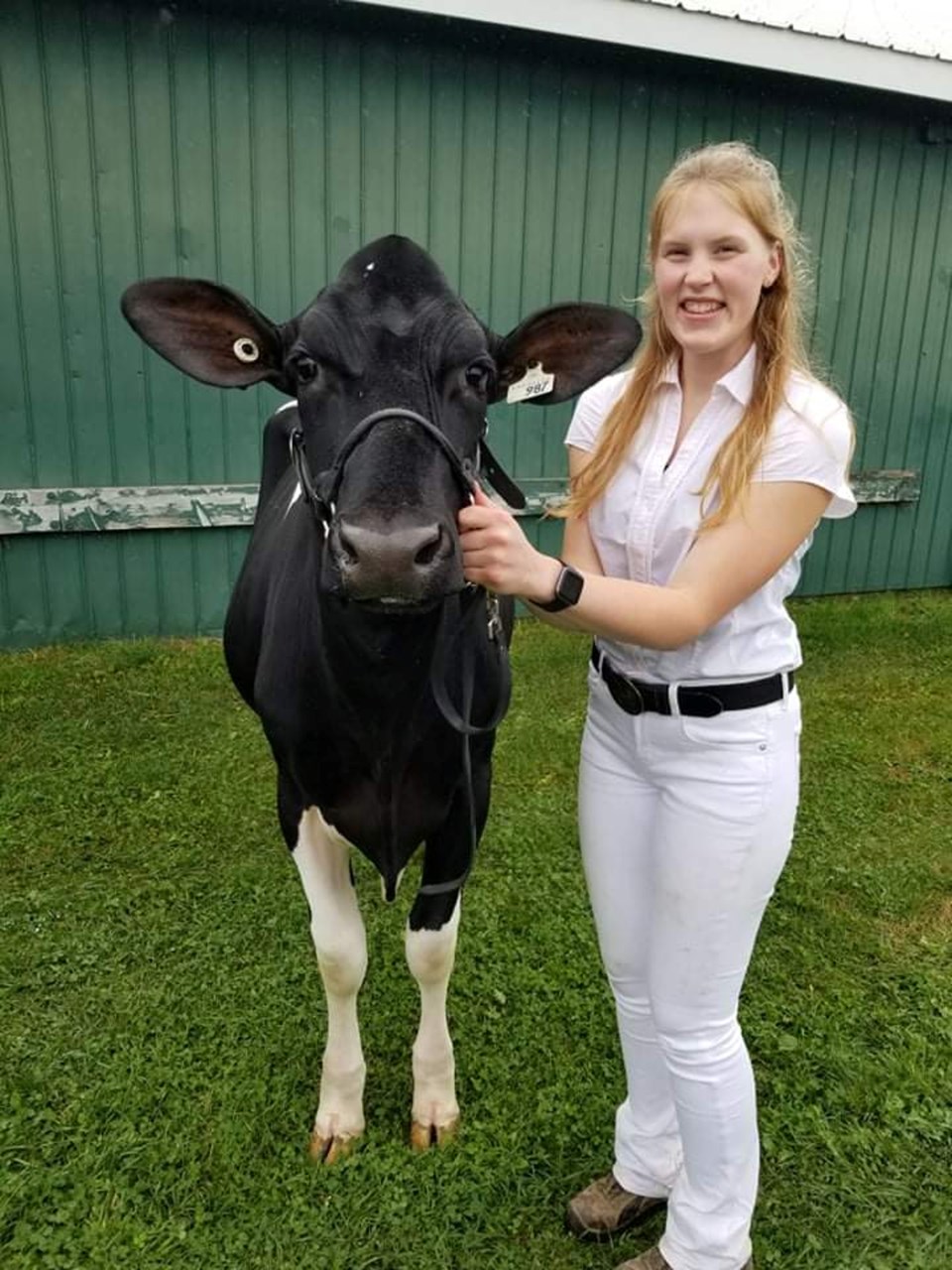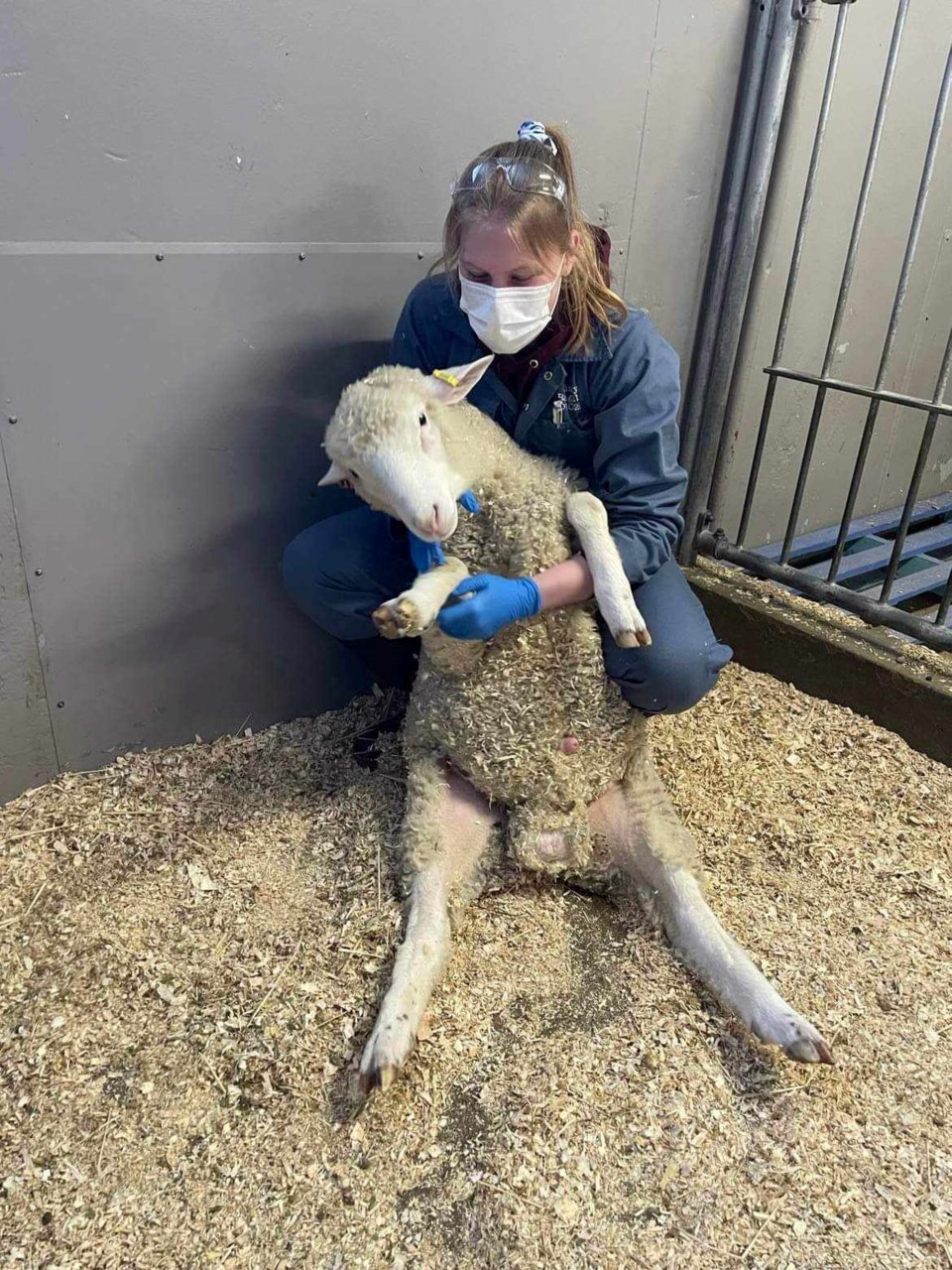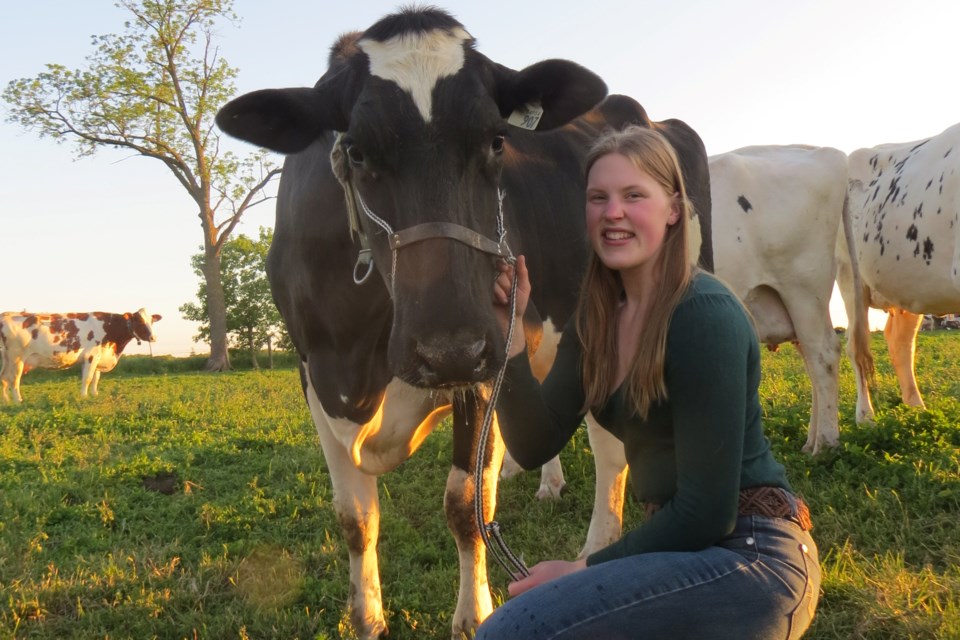Mikayla Ringelberg knew from a young age that she wanted to be a large animal veterinarian.
The Troy resident - she lives on the family’s Fennema Holsteins dairy farm - has been committed to that dream since she was seven years old.
“My parents often tell me the story of how the vet came on farm and we had a cow with a displaced abomasum (which sometimes occurs after calving) so the vet came to correct that and I was just like, ‘I want to do that when I’m older…I want to be able to do those kinds of things for farmers just to help them.’
“So that’s when the interest started, and it’s never wavered.”

Ringelberg grew up on the farm with sisters Deanna and Kathryn and brother Eathan. She completed her Bachelor of Science in animal biology at University of Guelph, and is currently in the third year of the four-year program at the Ontario Veterinary College (OVC) in Guelph. Her school schedule is demanding and varied; she spent one recent morning doing spay surgeries followed by lectures in the afternoon. At this time of year, she’s writing about a test a week and in the summers, she’s worked in the population medicine department with Dr. David Kelton and Dr. David Renaud.
Ringelberg says there are 117 students in the OVC program, many of whom are women - a trend that’s changed over the last generation or so.
“Dr. Kelton and Dr. Renaud were saying that in their years, especially going into large animal (practice), it was very male dominated. And now, year after year, it’s very female dominated so times have definitely changed,” she said.
After graduation, the plan is to work in a large progressive dairy practice, mainly with cattle. “I’m definitely open to (working with) small ruminants and some swine, but definitely bovine is where my passion is.”
Ringelberg says once students complete the OVC program and get their licence, they are qualified to work on any animal, but there are opportunities and support for students to pursue the track they want to take.
“As you progress through the years you get more hands-on experience,” she explained. “They have a dairy barn on campus where we can practise; there’s cattle there, and horses. We also do a lot of physical exams on dogs and cats as well as large animals and there are sheep handling labs that we get to do.”

Last summer, Ringelberg did an internship at a bovine clinic in Wisconsin, where she worked alongside 17 vets that serve the northeast part of the state. For 10 weeks, she got a taste of life as a vet.
“It was an incredible opportunity,” she said. “I spent 10 weeks there doing a research project and then mostly just working in the field, doing surgeries, doing pregnancy diagnosis, just just living the day in and day out of the vet.
“It was very tough going back into the classroom after breathing the air of the vet.”
In addition to her formal training Ringelberg was a 4H member from 2010 to 2021, where she took advantage of a range of clubs, from dairy, calf and veterinary to drama, baking and homemaking skills.
“It’s an amazing program that gives individuals like myself a lot of skills that you do really take on into your career,” she said.
Ringelberg showed 4H calves each year at Rockton World’s Fair and Royal Winter Fair. “I loved showing animals; I spent hours training my calves as did many other people in the clubs,” she said. “It's still a passion outside of the veterinarian aspect of my life. I still enjoy judging cattle and being a part of that aspect as well.”
Ringelberg noted that there is a shortage of vets at the moment, mostly in the northern and remote areas of the province; the university recently increased the number of spots in the program to allow 20 more students next year.
For those considering a career in veterinary medicine, Ringelberg advises spending time with a vet, and asking questions.
“There's no stupid question, that really is true,” she said. “Vets are more than welcoming to have new individuals in their truck who are really eager to learn. And that one starts conversations because we need more people in this industry.”
Volunteering and internships are also a great way to get experience, she adds.
"There's a lot of volunteering opportunities, to sit in the truck of a large animal vet, but but there's not necessarily a lot of paid positions," she said. "So I know it can be tough to sacrifice your summer, volunteering to do things like that, or taking time to shadow. But if you can, even over Christmas or so a couple of days off on the weekend, just get into the truck with a vet and get those experiences. I think that is very valuable."
Do you know an extraordinary young person in our community? We'd love to highlight their accomplishments in an upcoming "Inspire" feature! Please email story suggestions to [email protected].



